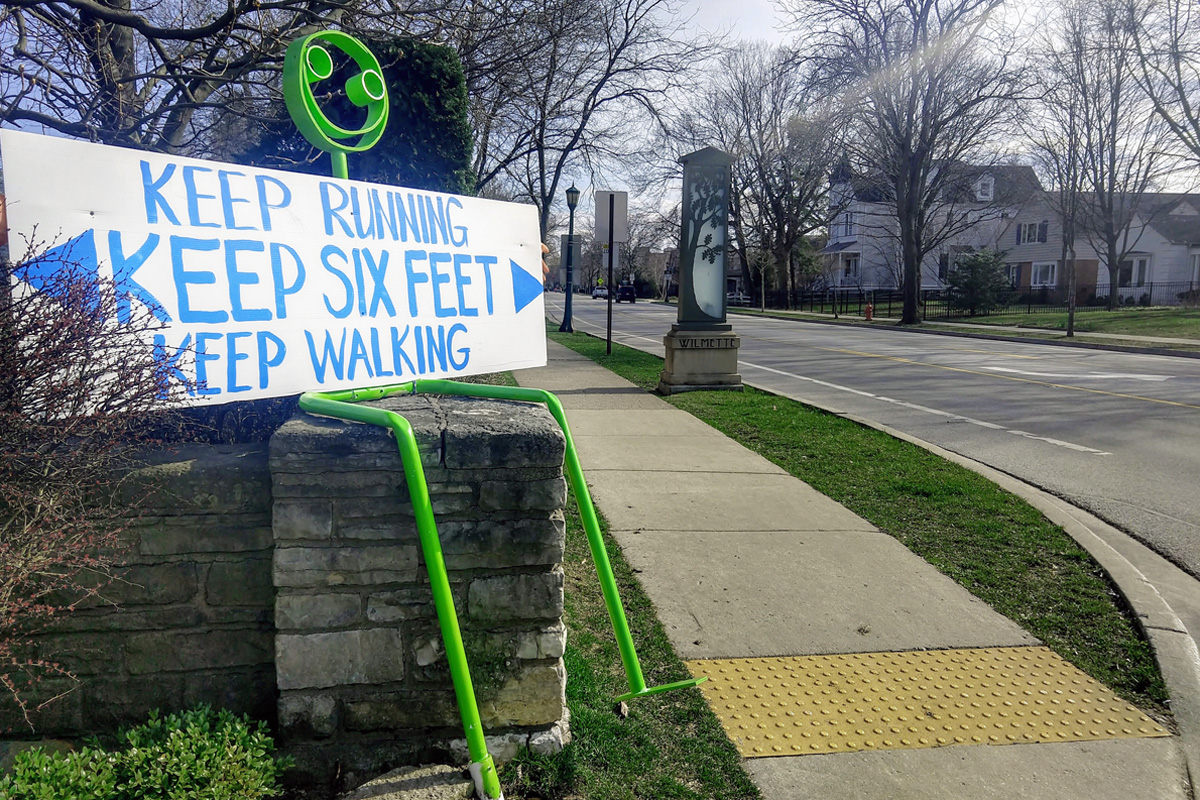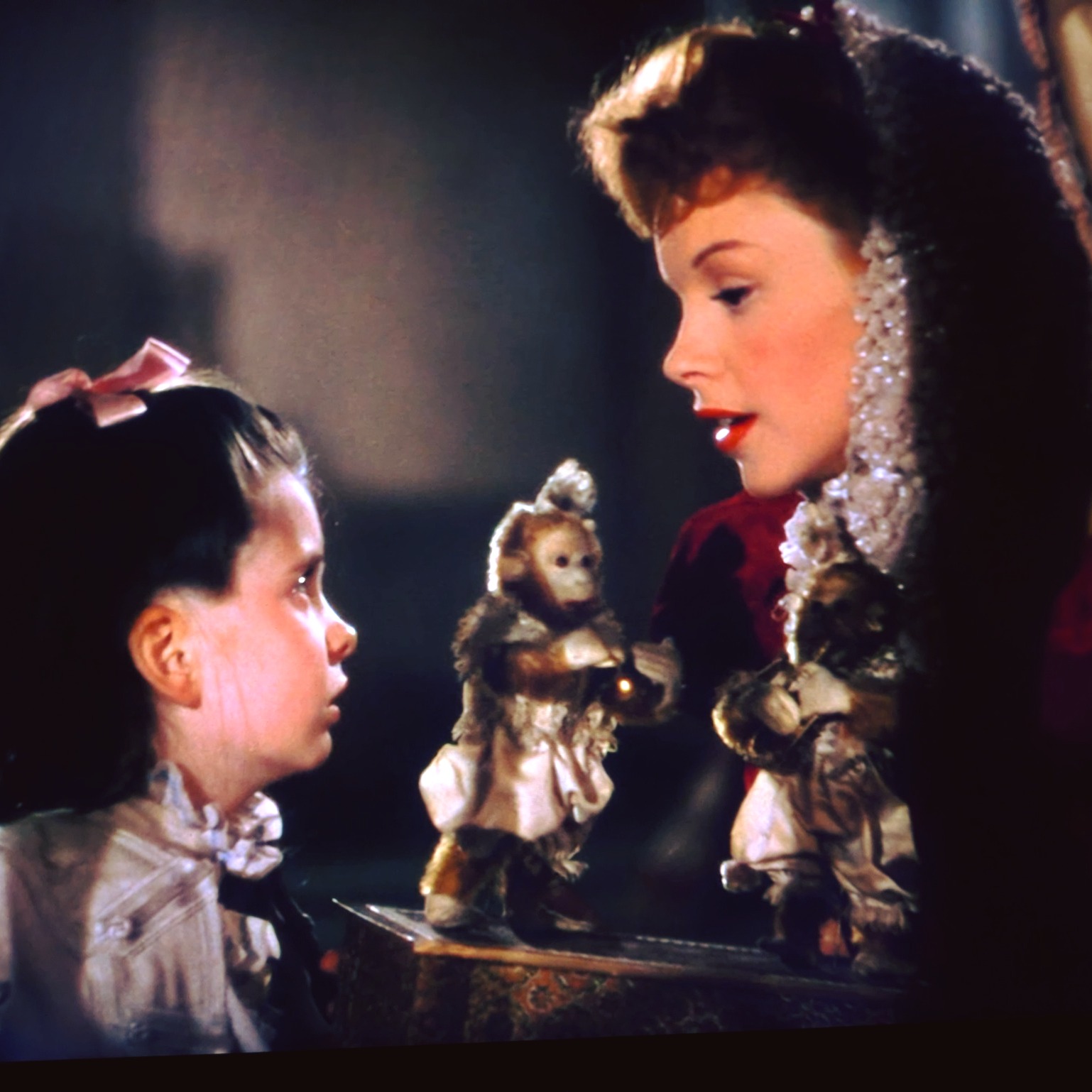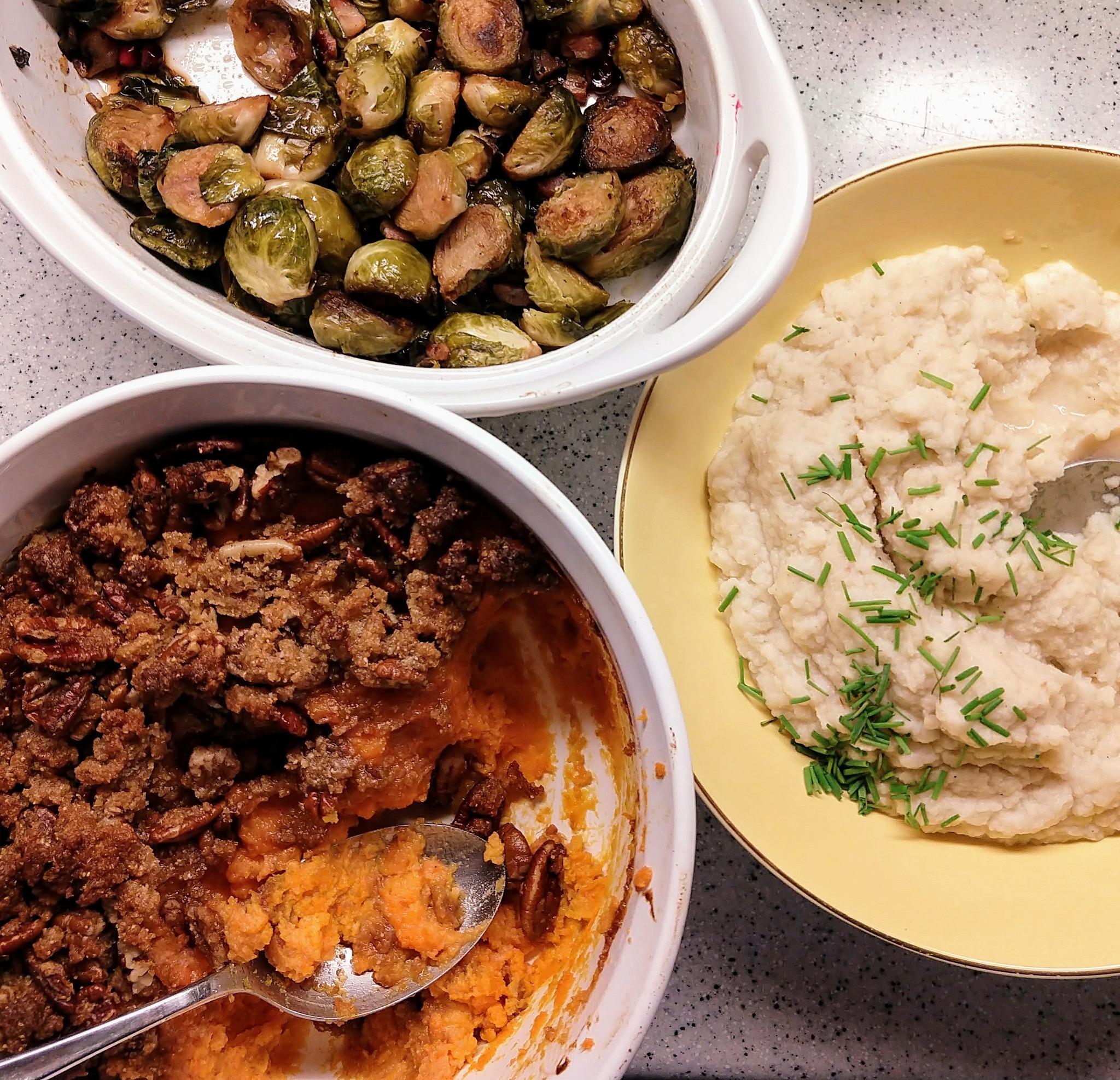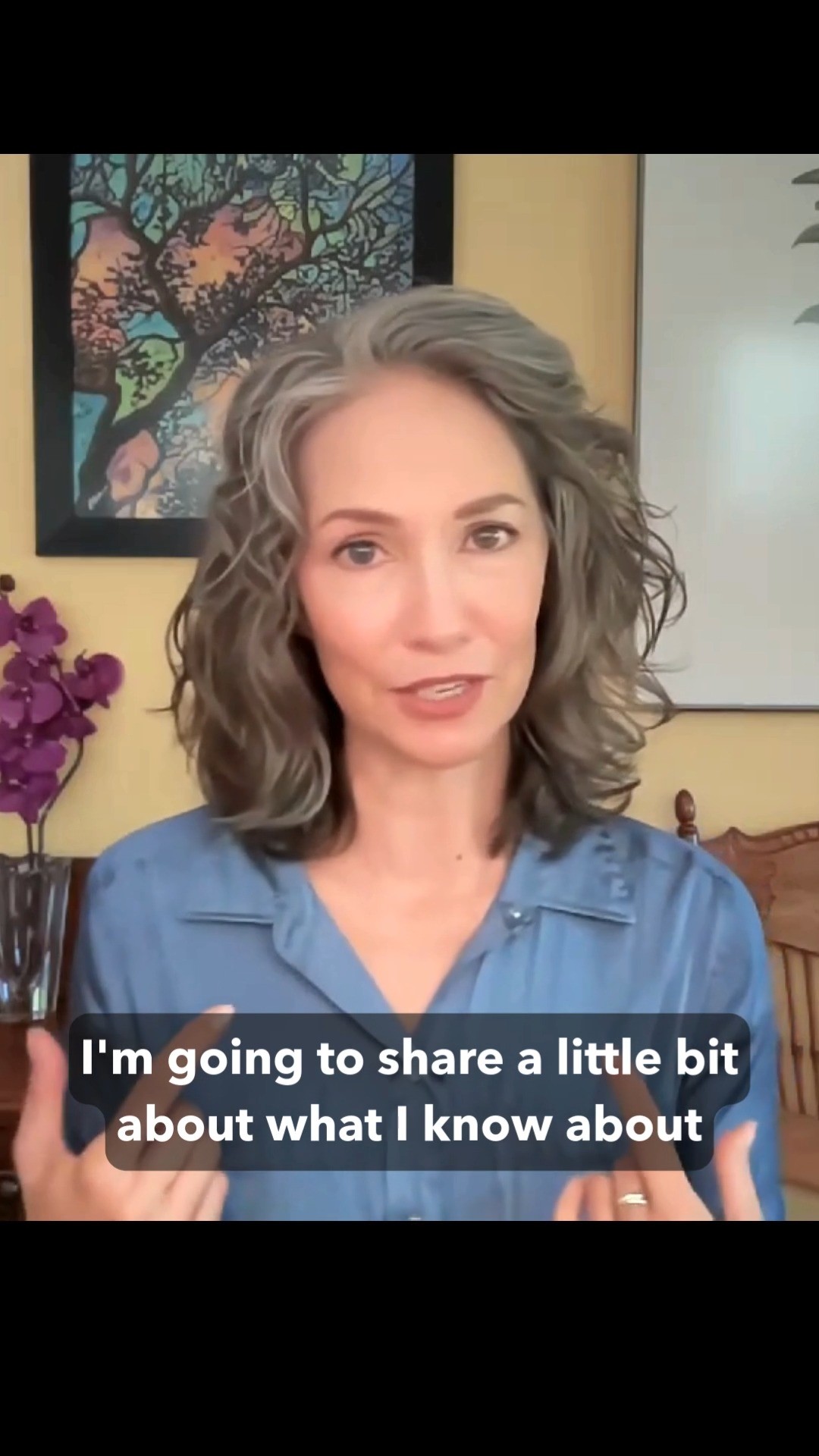Some funny things have been happening with my habits since this shelter-in-place started. Not necessarily funny “ha ha” but funny “yikes, what is going on here?” and also funny “huh! how interesting!”
I’ve had many clients slip back into bad habits of eating poorly, staying up too late, watching too much tv.
Some of us have had habits imposed upon us – like keeping 6 feet apart from others to observe the new physical distancing guidelines. Reminders like that one in the photo above are great for those who have yet to make this new routine a habit!
There are others who have created new, positive habits of meditating, yoga, going for walks, scheduling phone calls with long lost friends, having game night every Sunday.
Maybe it’s the loss of a regular schedule that is allowing us to revisit bad habits.
Maybe it’s the pressure of wanting to make the most of this quarantine time that is pushing us to create better habits.
But… will these habits last?
What is a habit?
A habit consists of three parts, sometimes called a “habit loop”:
- a cue (a trigger that reminds you to do something)
- a routine (this is the actual habit)
- a reward (this can be external or internal)
We’re going to jump around a bit and start with the end, the reward (if only it were always this easy…!).
Habits: Reward.
What is the reward of any habit? For most of us, it’s to feel better. Maybe you want more energy, to be more productive, to help your digestion, to avoid pain, to have the satisfaction of finishing a project or the happiness that comes from helping others.
Note that these are all internal rewards. And this is the end-game. To have all of our rewards be internal.
What are some other internal rewards that come to mind for you?
For many of us, that internal reward is the long-haul of doing a habit for days, weeks, months, maybe years before we see any result. Think of losing weight or saving for your retirement account – or maintaining that 6-feet of distance from others. These rewards are not immediate, so it’s sometimes hard to follow through since we are wired to be “in-the-moment” and see immediate results.
External rewards are tricky, but for many (most?) of us, they are needed to first establish a habit. These rewards can be that second cup of coffee, watching your favorite tv show, playing with your dog for 20 minutes after you finish organizing your receipts for the month.
Of course, getting off the tv and putting the dog toy down is another habit loop that may need addressing…!
Our daily lives are made of thousands of habits. Most of them we don’t even think about anymore – the internal reward is set. We know we’ll feel better.
It’s pretty important to figure out your rewards for your current habits, and make those external ones meaningful. Until you do, it’s gonna be pretty hard to change a habit.
Habits: Cue.
Skipping back to the first part: What triggers your habit?
When it comes to late-night snacking, is flopping on the couch after a long day of dealing with people your cue? opening up your laptop after dinner and typing “Netflix” into your browser?
When it comes to going for a walk every morning, is the sunrise your cue? an alarm clock? your asshole cat stepping on your face telling you it’s feeding time…?
Recognizing what cues our habits can be the very thing that allows us to start to change them. Cues tend to fall into five categories – I noted the cues in parenthesis the cues from the habits mentioned above:
- a place (the couch) (bed)
- an emotion (tired) (excitement for a new day)
- presence of others (being alone) (the cat)
- the time of day (after dinner) (morning)
- another behavior (opening laptop) (feeding the cat)
Habits: What cues are you giving yourself?
When it comes to your “bad” habits, what cues are you giving yourself? How about your good habits?
If you want to change a habit, try to change one of the cues. I’m not saying don’t feed the cat, mind you, but when it comes to late-night snacking on the couch, here are some thoughts:
Instead of opening up your laptop after dinner, what happens when you opt for opening a book (cue: another behavior)? Settle into a chair instead of the couch (cue: place) Go for a walk (cue: being tired – walking will help energize you)? Or call a friend (cue: presence of others)?
If you have a habit that randomly pops up with no apparent rhyme or reason, think about your cues. There is usually ONE cue that your habit has that is consistent.
Experiment and see what changing up the cue will do. There are no right answers, treat everything like a scientific theory you are testing. If the first change doesn’t work, try again with another.
Habits: Routine.
This is the meat of the loop. A question for you: are you looking to change your current routine, or replace it with something else?
Notice I didn’t ask if you were looking to stop a particular routine or habit. All habits give us something (see: Reward). And you must figure out what the reward is, which may not always be obvious and may require some deep diving. Sometimes routines give us the reward of comfort, a sense of belonging, or may give us a sense of calm us in times of stress.
If the reward isn’t obvious, ask yourself: what is the underlying need that is driving this current routine?
And: how can you meet that need with a better, healthier routine?
Habits: Are you even ready to change…?
Despite having the best intentions, people are not always ready to change. If you are feeling ambivalent about making a big shift in your routines and habits, consider taking some time to really explore that ambivalence. You might be best to sit with your resistance a little bit rather than push yourself into something you’re not ready to do.
There are a few things to consider when encountering resistance with a new routine:
- Underlying emotions. If we have a lot of anger or guilt, we tend to numb those feelings with unsavory behaviors. This may require some more deep diving.
- Not knowing enough about a good habit. Get the facts about the new habit, do some research and some planning if you need to.
- What are the benefits of changing? Keep a running list of the pros and cons and update this are you gain insight into your emotions and learn new information with your research. Until the pros outweigh the cons, there may be little motivation or understanding behind the “why” for creating a new routine – and you may have a harder time making a new habit stick.
Habits: Create your ideal vision of yourself.
Something I do with every client is to help them create a vision of their ideal self and life. No, this is not the “perfect” life, this is a realistic, attainable vision. This is different from the map of how to get there – this is the WHY.
If you have a powerful, detailed, attractive WHY, then the HOW – the routines and habits – will become clearer.
Every habit you make is a vote for the identity you want to create – the person you want to be in your vision.
So, who do you want to be?
How are your current habits voting for – or against – this person?
For further reading, I highly recommend James Clear’s Atomic Habits and Charles Duhigg’s The Power of Habit.
My offer to you.
In light of all that’s been going on in this world, I would like to offer you, dear reader, some coaching.
I will listen deeply, offer empathy, and help you make sense of what’s going on in the world right now. It does not have to be about nutrition or autoimmune issues. We can talk about anything that’s on your mind.
We can talk about anything that’s on your mind:
- creating new habits in this “new normal” – or maintaining current habits
- work challenges – either working from home or being out of work
- figuring out how to best spend your time with your now at-home children (and still retain your sanity)
- how to cope if you have too much free time, or if you are finding it hard to strike a work-time vs. free-time balance in light of recent changes
- how best to manage stress
- guilty feelings about not having to go work or the gym or maybe cheating on your diet
- feeling ok doing absolutely nothing for a while
- helping you create structure in your life and a plan moving forward – whatever that may mean to you
- help you regain control if you are feeling out of control
- if you are a health care worker, I can offer empathy and support for what you are facing right now.
To book your Complimentary “Meet & Greet” Session and Assessment, click here.
Be well, everyone, and I look forward to meeting you.
Sandy
Sandy Swanson is a Certified Functional Health Coach who received her training from Chris Kresser’s ADAPT Health Coach training course (A-CFHC) and is also a National Board Certified Health and Wellness Coach (NBC-HWC). You can learn more about her here and more about what coaching is here.







